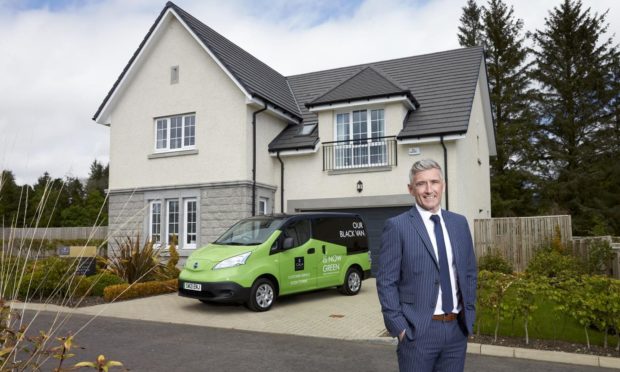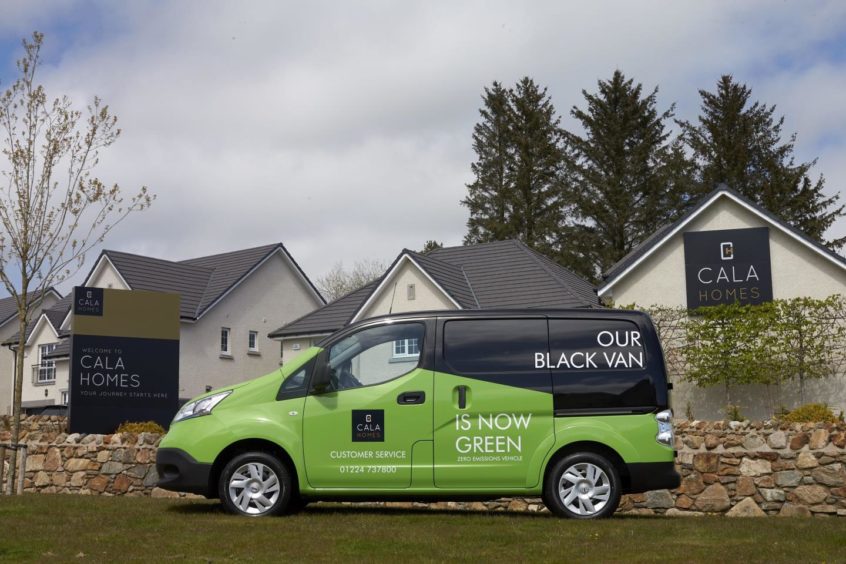It’s green for go in Aberdeen as a local housebuilder launches its ambitious plans to become more environmentally friendly.
From electric cars and reducing waste to energy saving and recycling measures, CALA Group has launched a Sustainability Strategy in an effort to reduce its carbon footprint.
The CALA Homes team in Aberdeen – which has seven live developments across the city and shire – is aiming to build homes that are operationally net zero carbon from 2030 and to reach net zero greenhouse gas emissions in line with the Scottish Government’s 2045 target and ahead of the UK Government’s 2050 target.
Mike Naysmith, managing director of CALA Homes North, said the company is determined to decarbonise its operations.
“Sustainability has been high on the agenda here at CALA for some time, however with the launch of our new strategy, everyone across the business can now play their part in driving forward the changes needed to create a more environmentally responsible future,” said Mr Naysmith.
“We’re very proud to play our part here in the North division, whether it’s coming up with new ways of saving energy in our offices, taking part in technology trials on our developments, or feeding into working groups with other CALA regions.”
A North “Green Team” has been established along with nine others from each of CALA’s offices, to brainstorm, research and implement initiatives which will help bring about positive change in the region.
As part of this, the team have introduced the first electric vehicle to the housebuilder’s fleet, in partnership with Inverurie-based Jim Reid Vehicle Sales and Service.
The fully liveried customer service van is the first in a move that will see greener transport rolled out across the entire business in the coming months and years.
The team is also already carrying out vital waste benchmarking work at the Mains of Grandhome development in Bridge of Don which will inform design and procurement processes to ensure less waste on sites.
Mr Naysmith said they will use a roadmap to record and reach their goals.
“Collectively we’ll be looking at tangible ways we can decarbonise our operations, in specific areas such as zero carbon homes, office environment, site environments, procurement and transportation – producing a roadmap of targets, measures and areas of interest to pursue as priorities,” said Mr Naysmith.
The roadmap will include research on and testing of various technological innovations, including the investigation of measures such as infrared heat mats and panels, battery and thermal storage technology, hydrogen and electric boilers, mechanical ventilation systems and new concepts around biodiversity.
The business will also look at the basics of how it operates – from how it engages with suppliers and subcontractors, to how colleagues travel and offices are run, and the ways CALA interacts with communities and wider infrastructure.
Mr Naysmith continued: “A key part of the Sustainability Strategy is to embed sustainability into the CALA culture, so it’s really important that the team across the business helps drive it.
“We want CALA to be a place to be proud of, for our customers, our contractors and our colleagues.”
For more information on CALA’s Sustainability Strategy, visit www.cala.co.uk/sustainability

